Article Review: Knowledge Management in Public and Private Sectors
VerifiedAdded on 2022/09/08
|5
|936
|24
Report
AI Summary
This article review critically examines an article titled "KNOWLEDGE MANAGEMENT: A REVIEW." The paper explores the concept, importance, and impact of knowledge management (KM) in both the private and public sectors, emphasizing its role in maintaining a competitive edge. The review analyzes the challenges organizations face when implementing KM frameworks, including organizational and cultural barriers, and how these can be mitigated. The article uses an exploratory method, relying on secondary data from journals and online sources, and relates the findings to organizational knowledge management theory and ecological knowledge management theory. The review critiques the article's reliance on older sources, lack of clear theoretical discussion and context, and absence of quantitative research. Despite these weaknesses, the review acknowledges the article's contribution to understanding KM basics, impacts, and challenges, especially in organizational contexts. The review concludes that the article provides a foundational understanding of KM but lacks in-depth analysis and practical recommendations, and does not provide any limitations of the research or address the future scope of the study.
1 out of 5
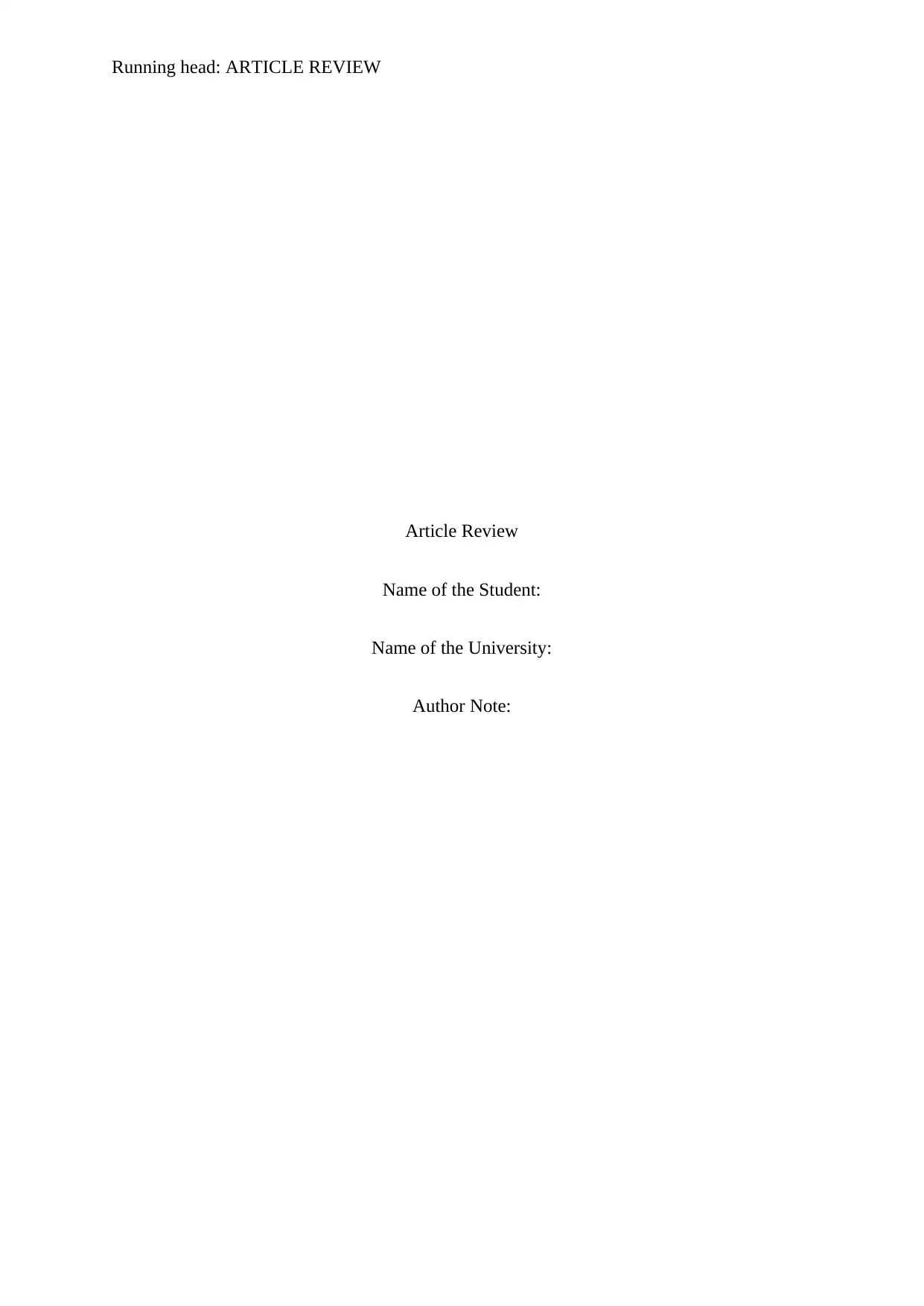
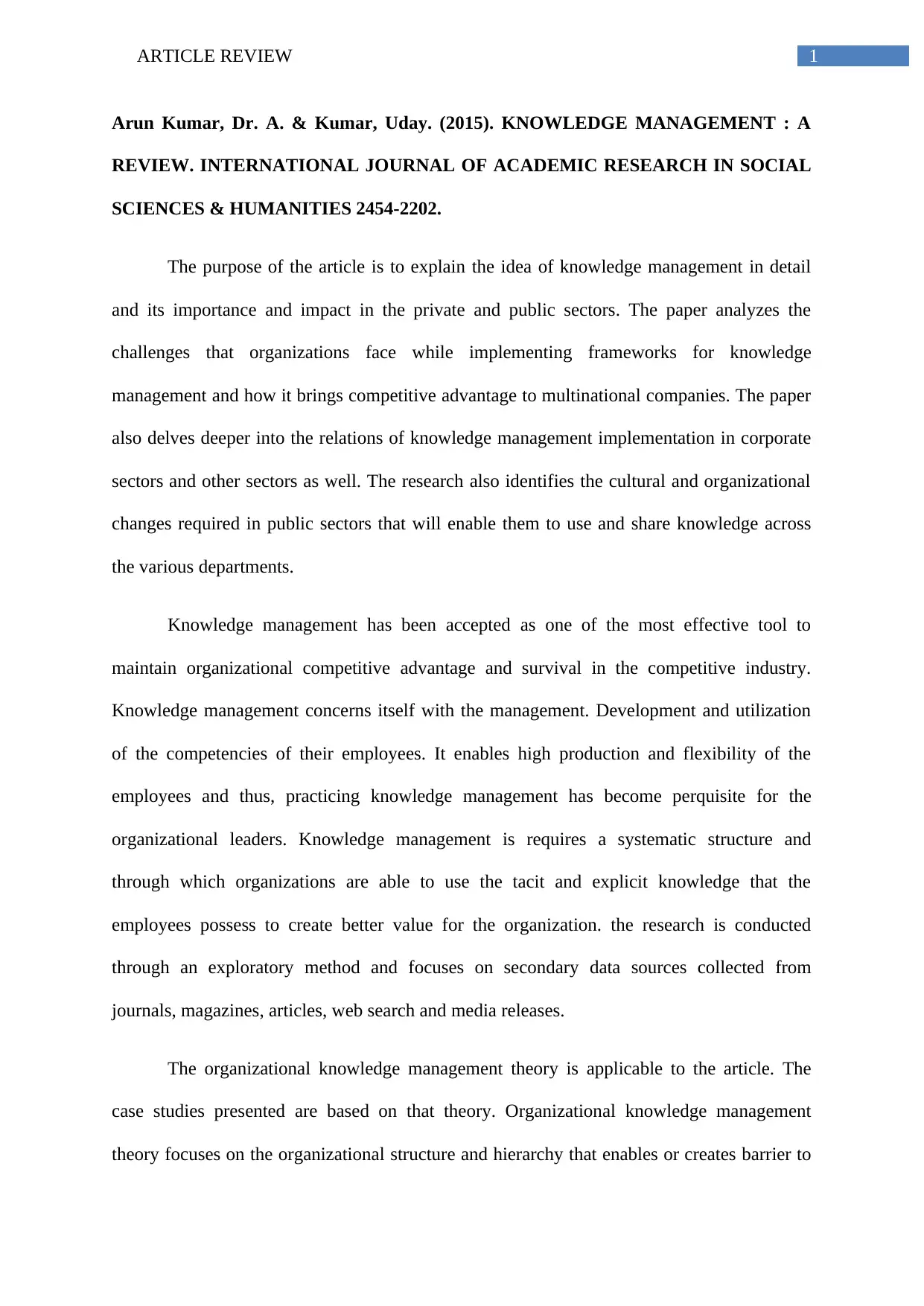
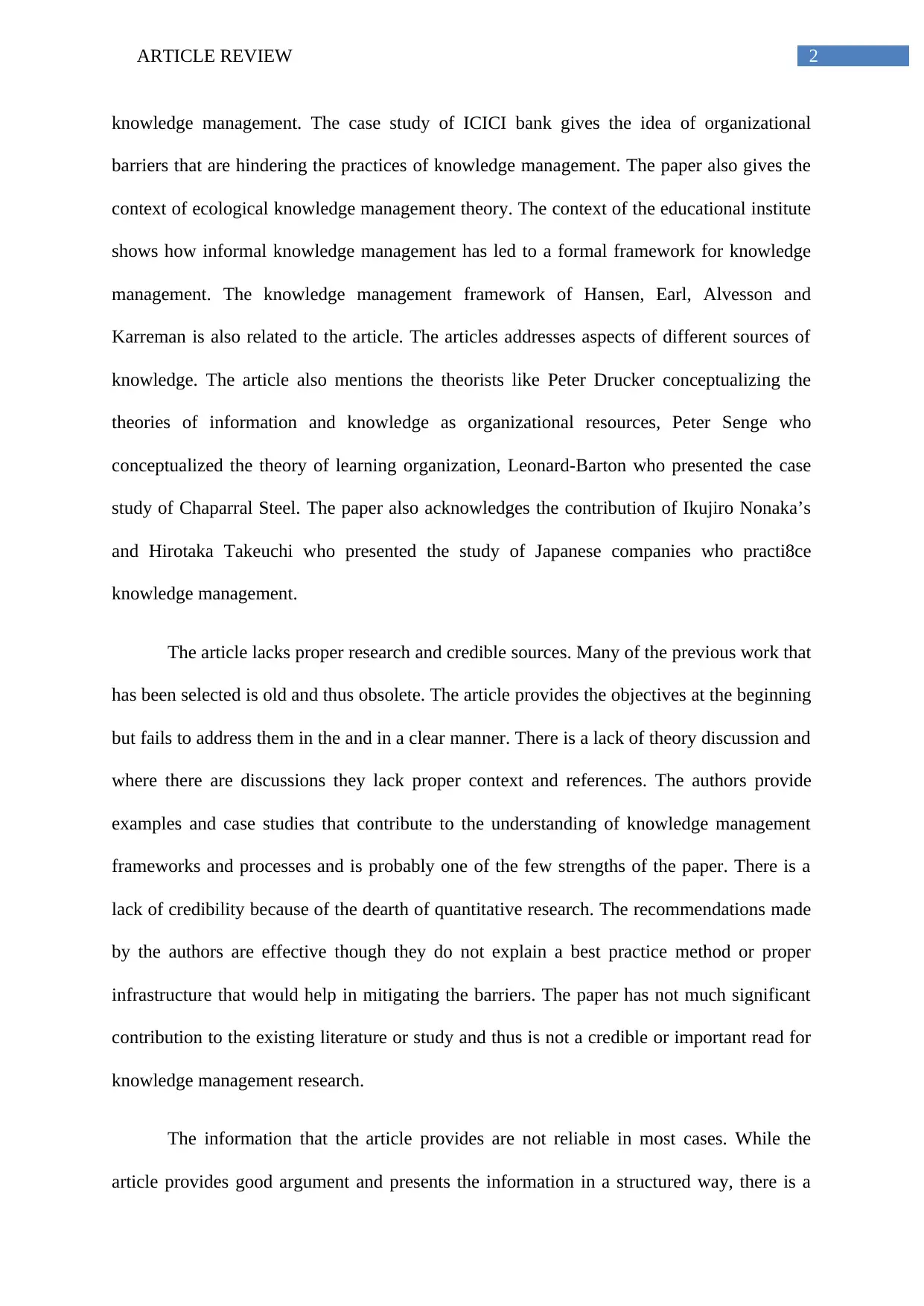

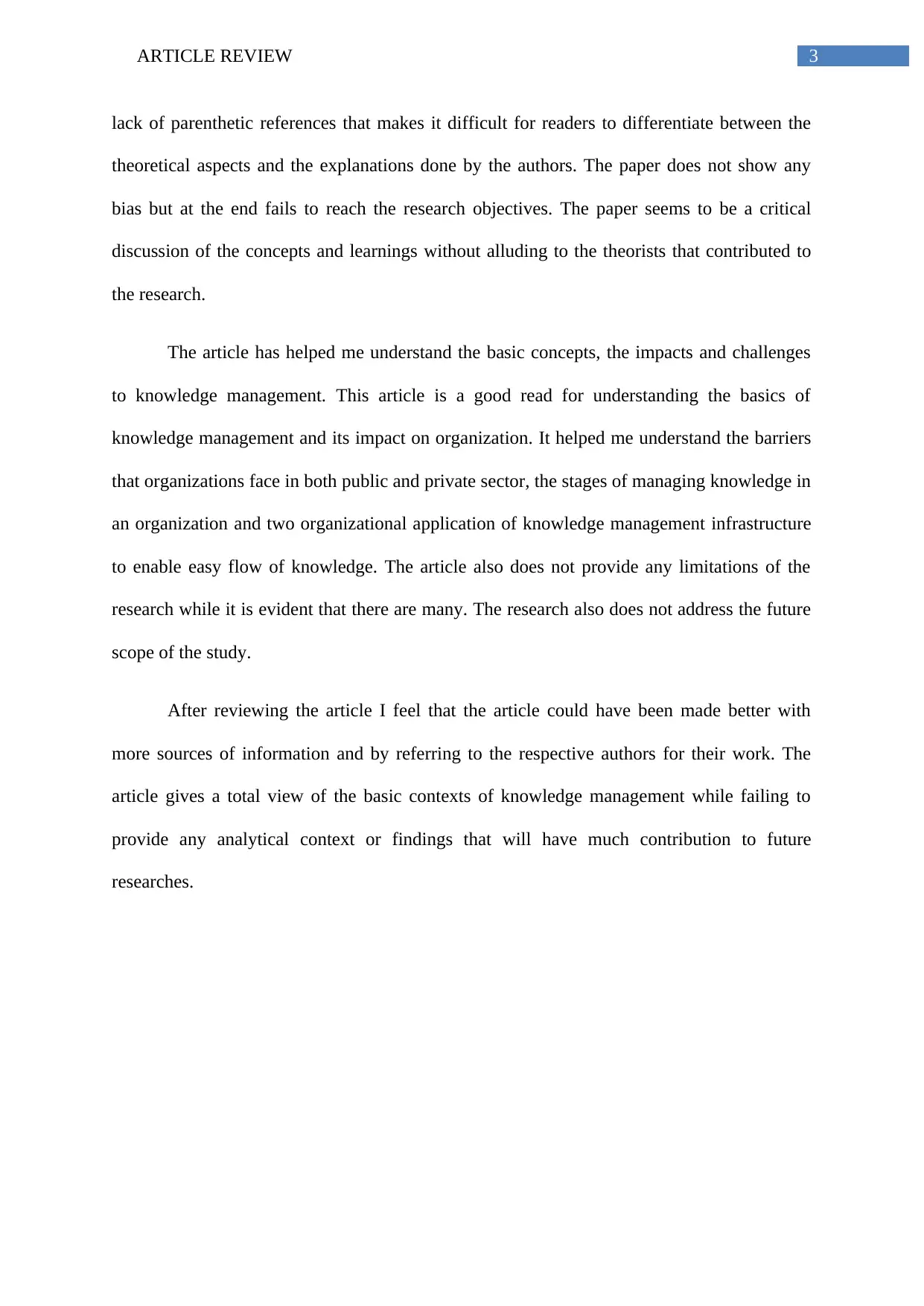
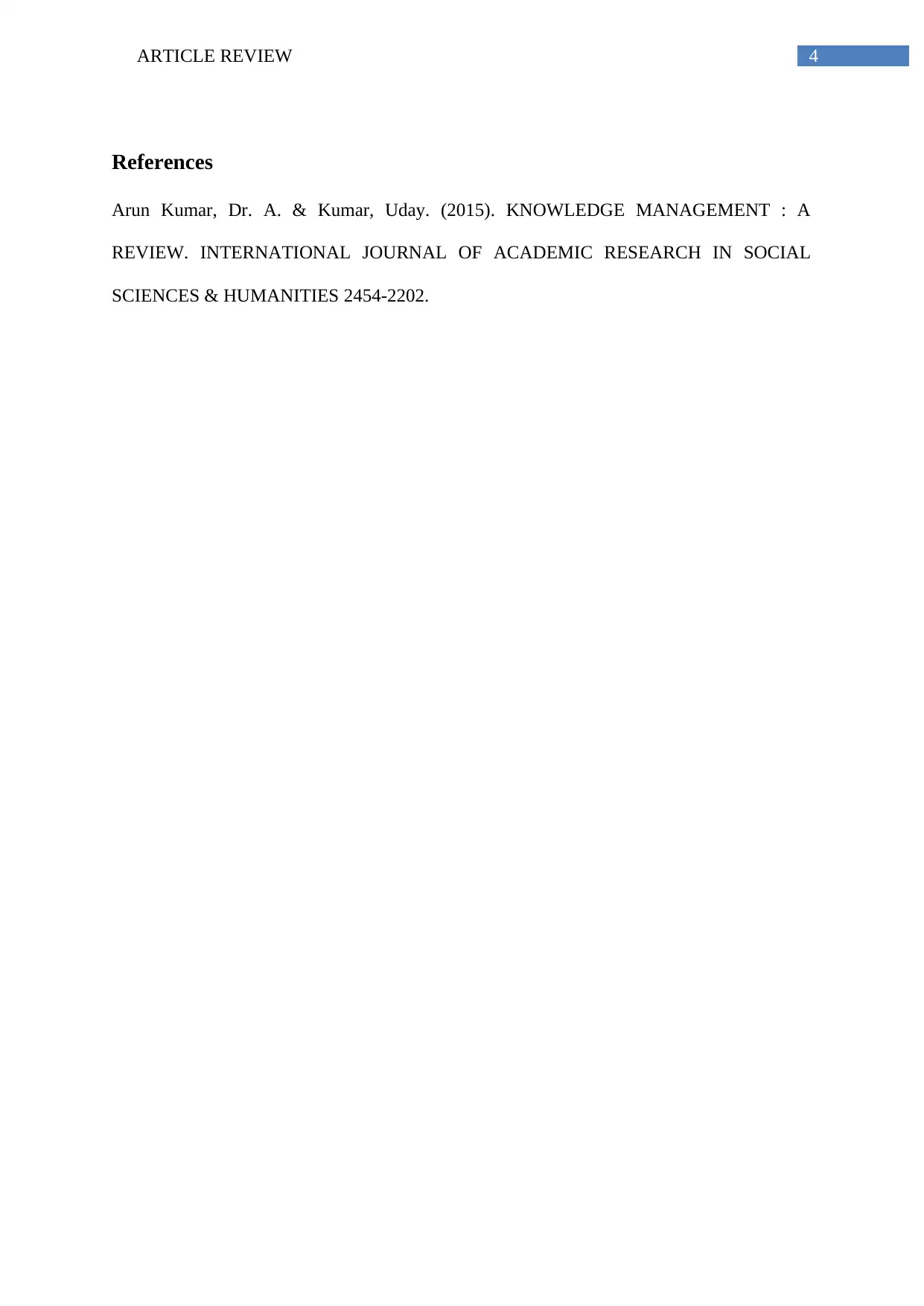






![[object Object]](/_next/static/media/star-bottom.7253800d.svg)